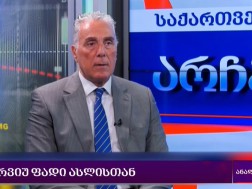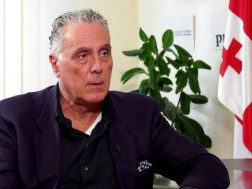Fady Asly, Chairman of the Georgian National Committee of the International Chamber of Commerce, publishes an open letter regarding the "Foreign Agents Law," also Known as the "Russian Law".
"I am writing this letter to inform society at large, of all the consequences that Georgia will be facing after the implementation of the “Russian Law” in the country.
It is a fact that the enactment of this law by the Georgian Government will trigger a series of adverse consequences that will profoundly impact the business environment, the economy, and the overall prosperity of Georgia, as outlined in the following points:
1. Stifling Civil Society and Democracy
• Impact on Governance: Civil society organizations (CSOs) are crucial for a healthy democracy as they hold government accountable, advocate for transparency, and fight corruption, therefore constraining their operations will lead to less oversight and more corruption, deteriorating the quality of governance.
• International Perception: Implementing such a law will be perceived as an authoritarian shift, which will destabilize the democratic progress and image of Georgia on the international stage.
2. Economic Consequences
• Investor Sentiment: Foreign investors typically seek stable, transparent, and predictable political and legal environments; hence labelling NGOs as foreign agents will signal political instability and unpredictability, deterring foreign direct investment (FDI).
• International Trade Relations: Countries and international blocks might reconsider their trade agreements with a nation that suppresses civic freedoms, potentially leading to sanctions or trade embargoes.
3. Implications for International Aid and Development
• Disruption of Aid: Many NGOs channel international aid for development projects, including education, healthcare, and infrastructure; this law will disrupt these flows, adversely impacting development outcomes.
• Conditionality of International Assistance: Western countries and international organizations often condition aid on human rights and democratic governance; this law will lead to a reduction or cessation of assistance.
4. Sector-Specific Impacts
• Technology and Innovation: A thriving civil society contributes to a vibrant intellectual ecosystem, restrictions on NGOs will stifle the innovative capacities that are crucial for technological advancements and economic diversification.
• Tourism: Georgia’s image as a progressive and tourist-friendly destination will be tarnished, reducing tourism revenues, which are significant for the economy.
5. Brain Drain
• Emigration of Talent: Increasing authoritarianism will lead to the emigration of skilled and educated Georgians, especially the youth, who might seek more democratic and open societies to live and work in.
6. Societal Harmony and Progress
• Social Divisions: The law will deepen societal divisions by labelling NGOs as ‘foreign’ or alien to Georgian interests, leading to increased polarization and social conflict.
• Cultural and Educational Impact: NGOs also support cultural and educational programs that enrich society, therefore limiting their operations will stifle cultural exchange and educational opportunities.
7. Legal and Constitutional Challenges
• Constitutionality: The law contravenes the Georgian constitution and international legal obligations related to freedom of expression and association, leading to legal challenges domestically and internationally.
The “Law on Foreign Agents/ Russian Law” represents not just a significant risk to the democratic fabric of Georgian society, but also poses substantial economic risks; politicians and businessmen who claim that this law will not affect the Georgian economy are foolish and are misleading the population.
The International Chamber of Commerce (ICC) is the largest Business Organisation in the world, uniting more than 45 million businesses and 12,000 chambers of commerce in 190 countries. ICC works closely with the G7, G20, World Bank, IMF, WTO, WCO and UN, where it holds a permanent seat", - writes Fady Asly, Chairman of the Executive Board of the Georgian National Committee of the International Chamber of Commerce.























